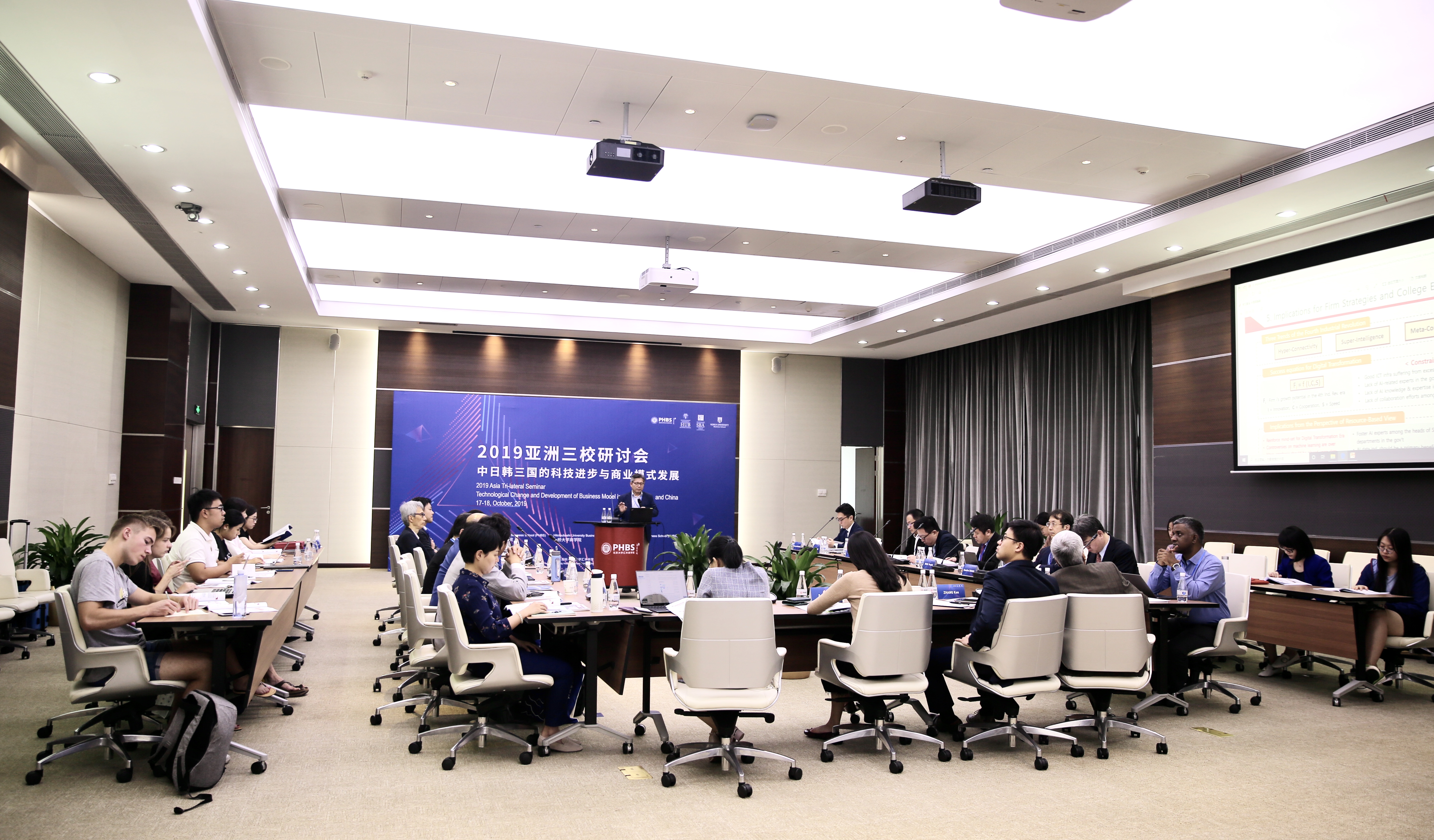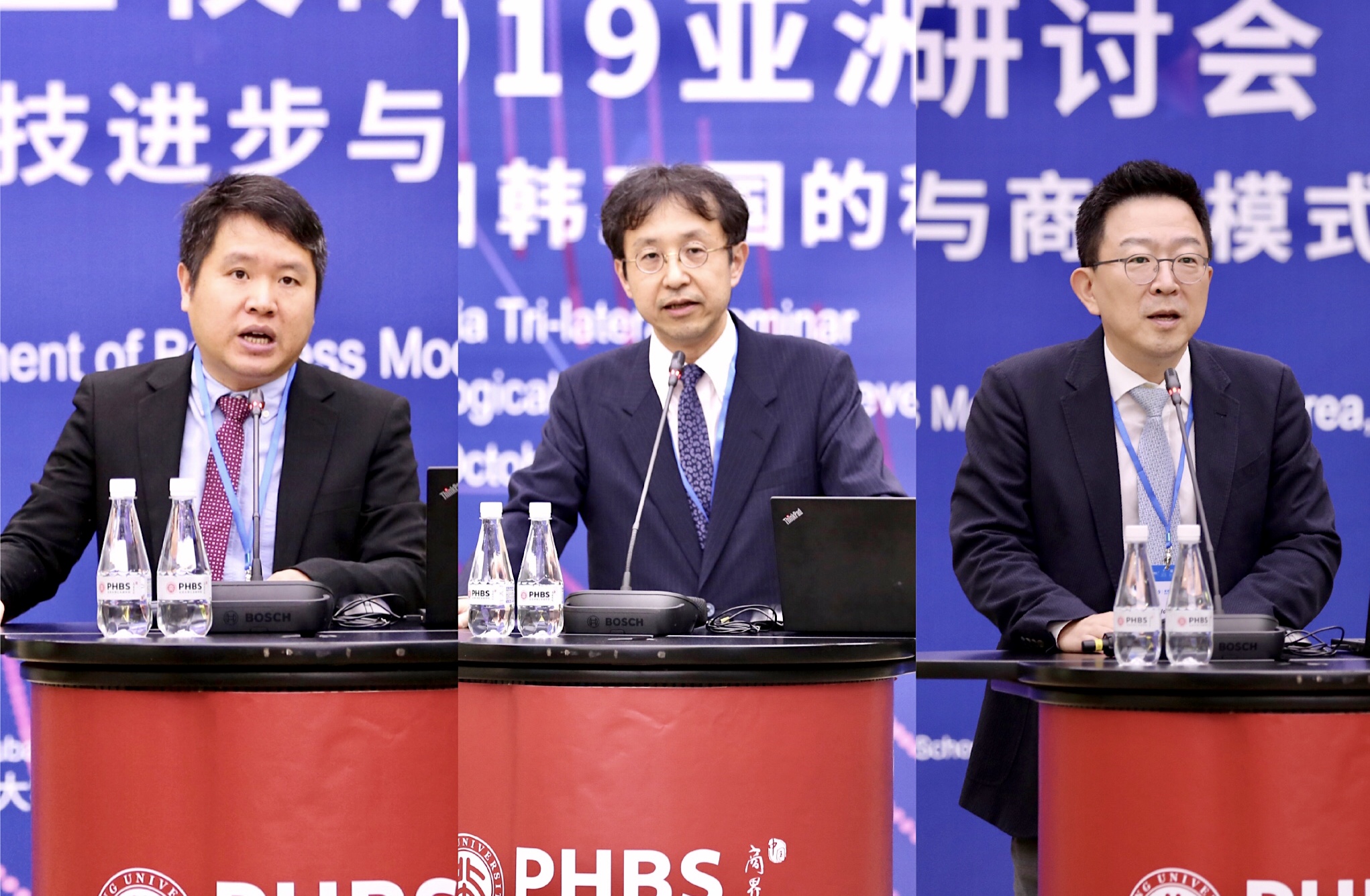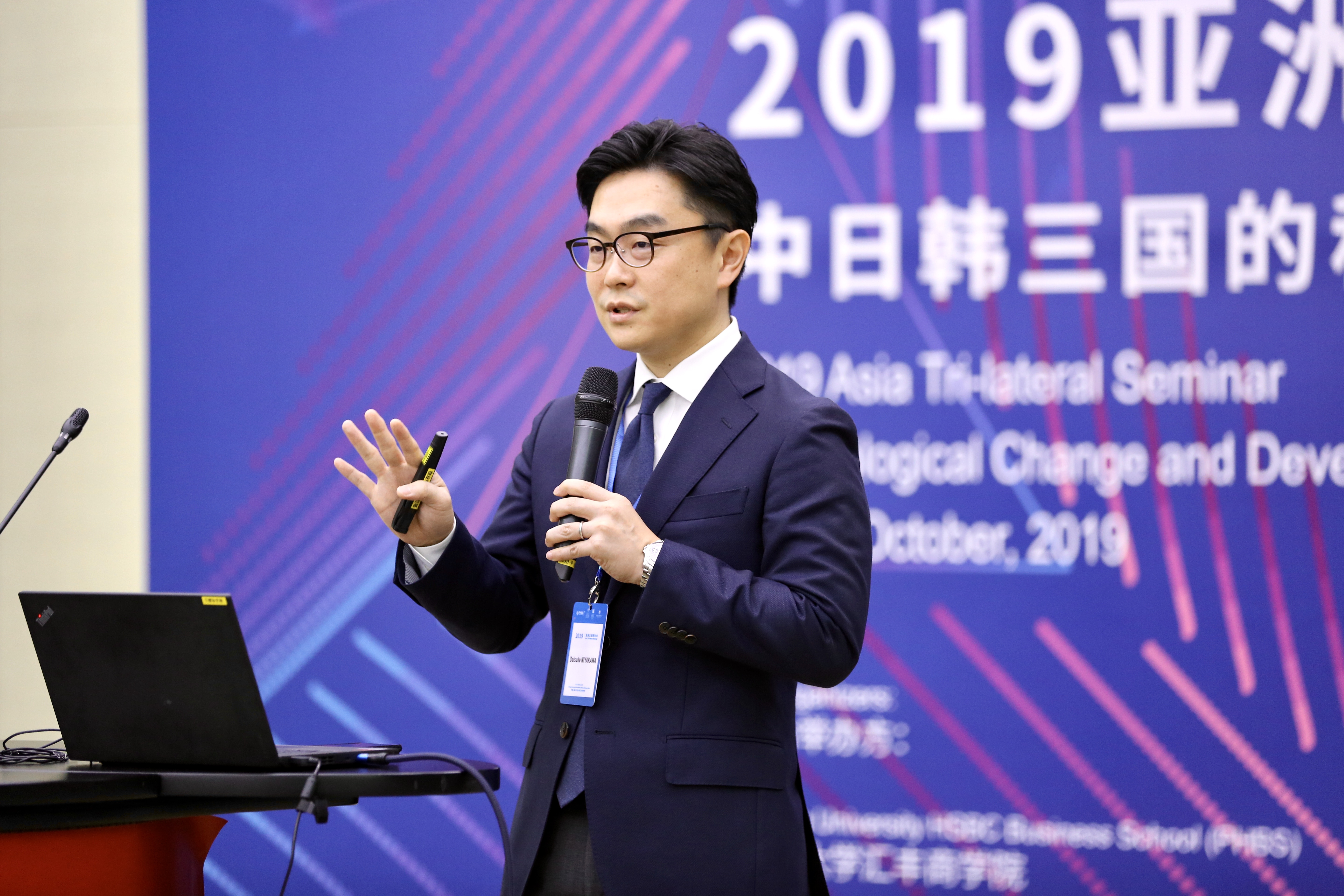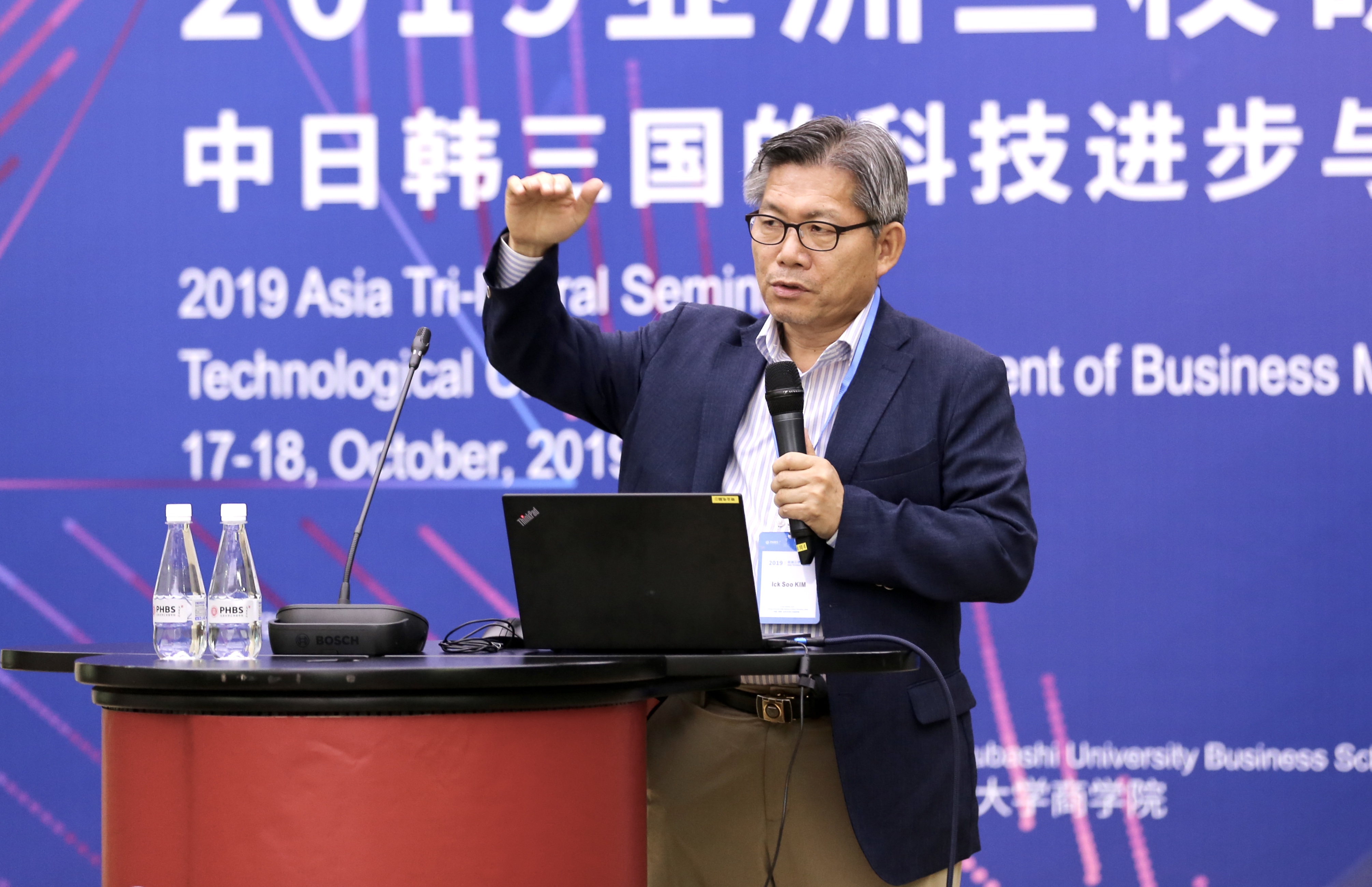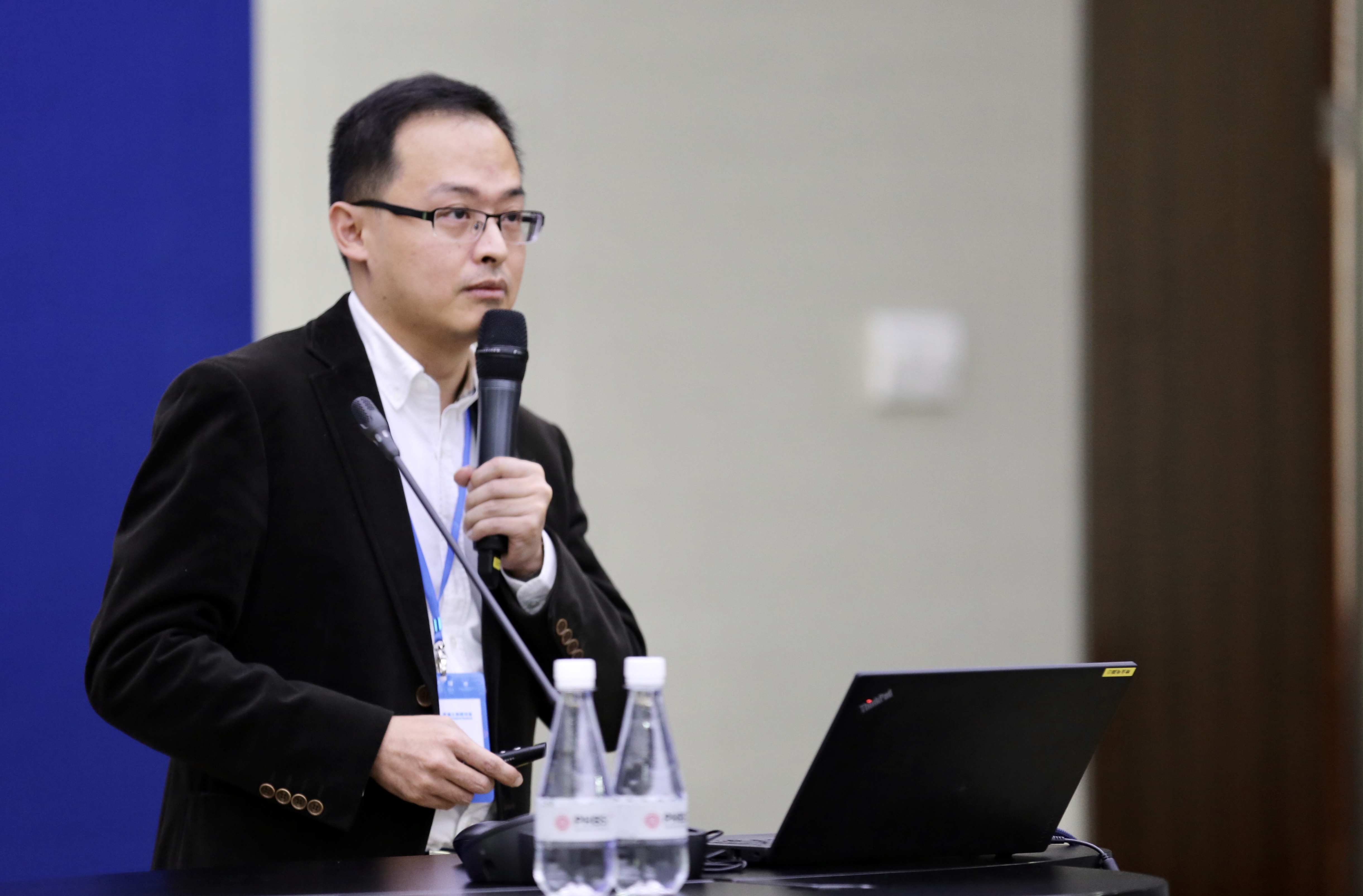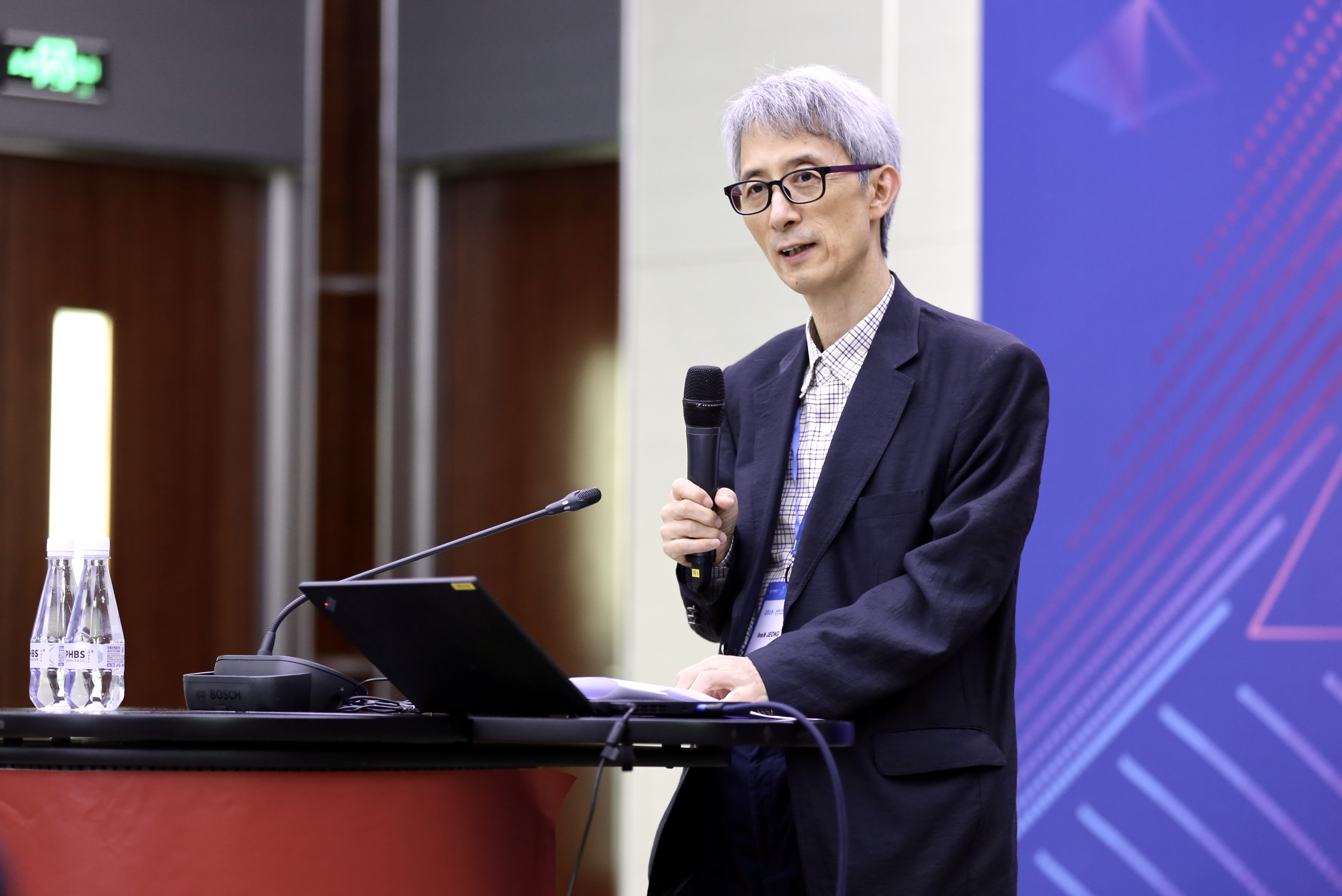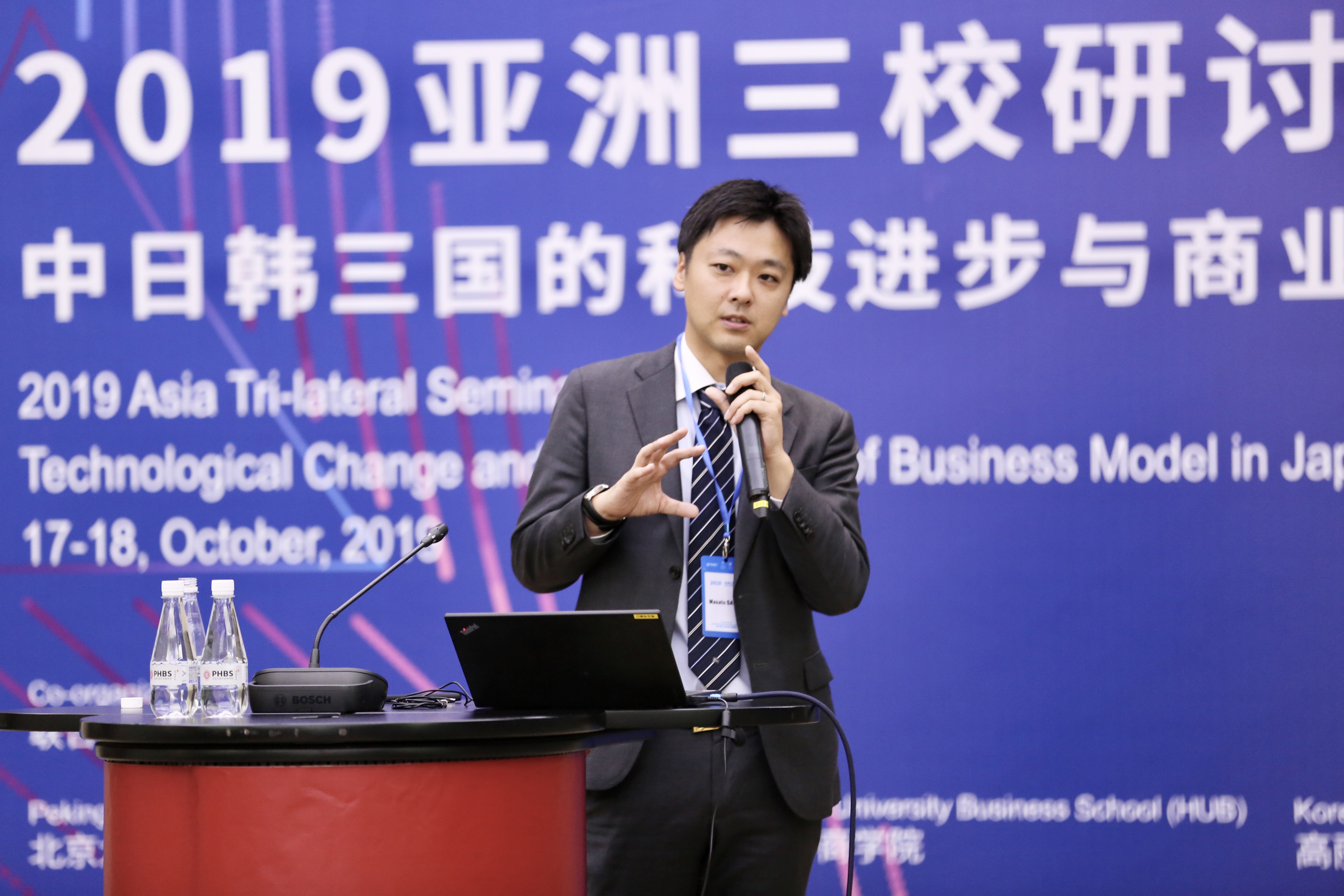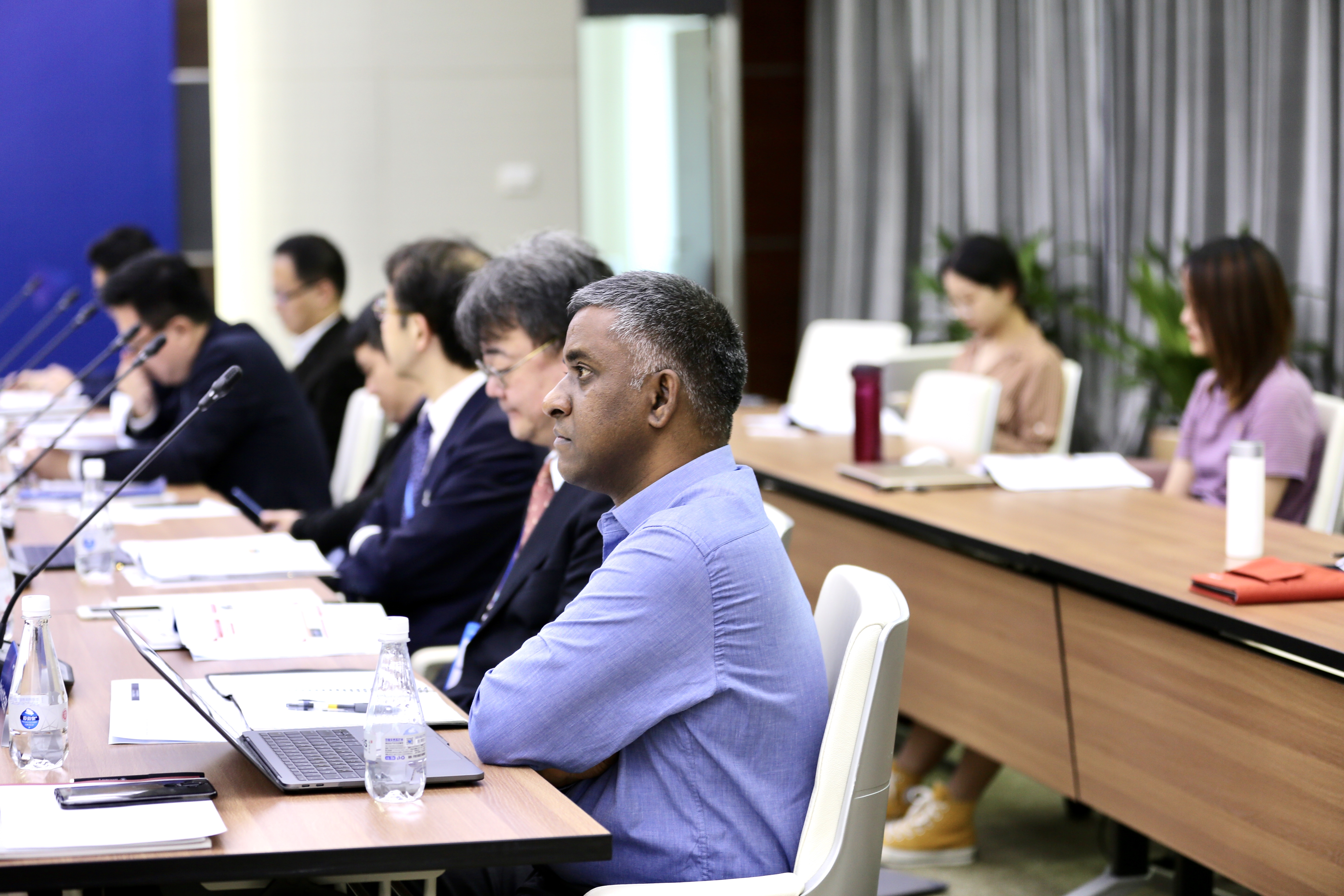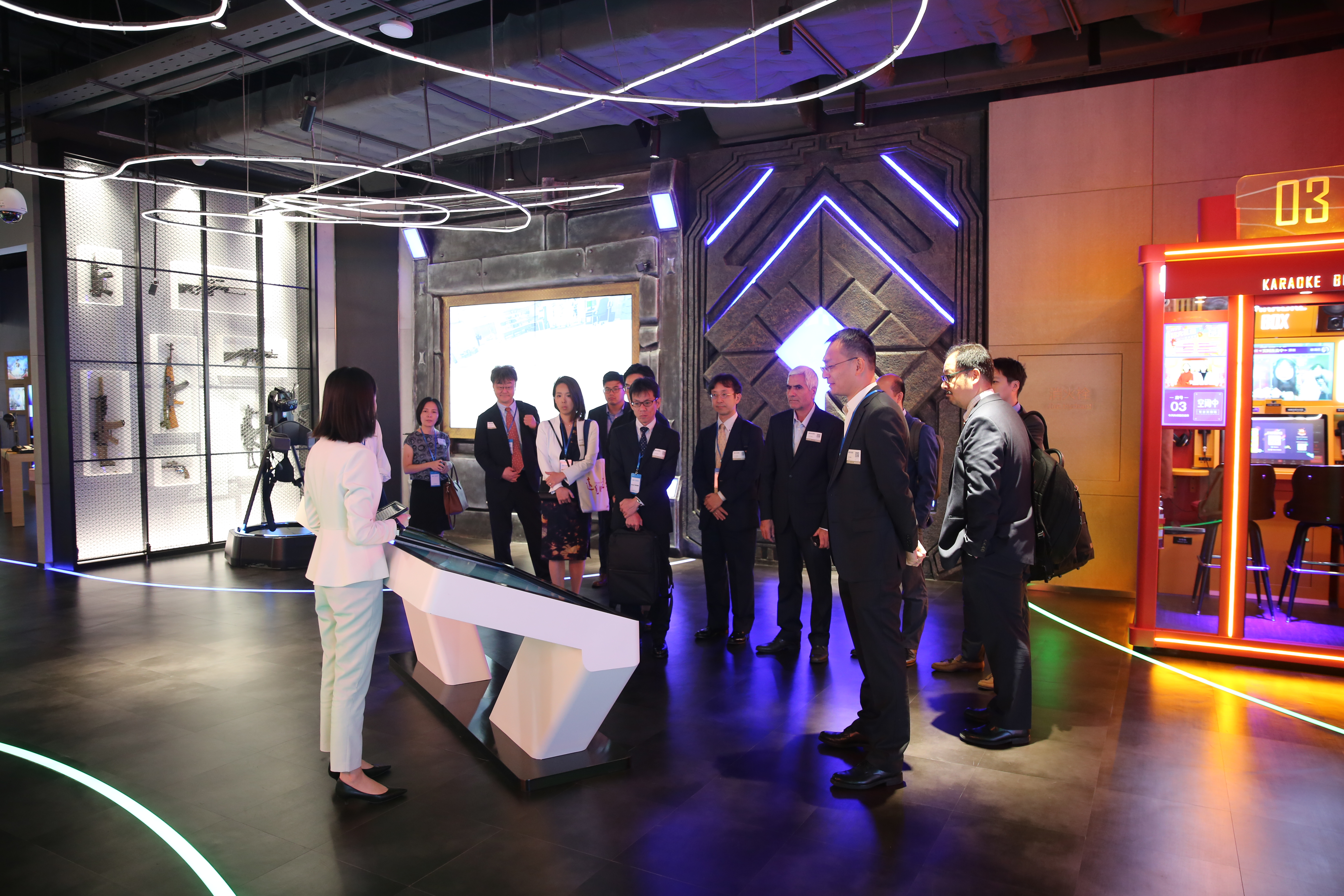As the business landscape has undergone significant changes, countries worldwide are striving to give full play to technology innovations. What kind of changes will such innovations bring? How can economies better embrace cutting-edge technologies, such as artificial intelligence (AI) and machine learning (ML)?
In this context, the 2019 Asia Tri-lateral Seminar was held at Peking University HSBC Business School in Shenzhen, China with the theme of “Technological Change and Development of Business Model in Japan, Korea, and China.” Since its inaugural meeting in 2017, this annual seminar has been jointly organized by three leading business schools, Peking University HSBC Business School (PHBS), School of Business Administration, Hitotsubashi University Business School (HUB-SBA, Japan), and Korea University Business School (KUBS).
This year’s seminar featured three keynote addresses, open discussions and a Q&A session, ranging from topics such as big data science, AI application, and business ecosystem. Scholars and researchers from China, Japan and Korea converged to discuss topics related to technology’s impact on the business model and analyze critical issues in current business trends.
From left to right, Professor Wang Pengfei, Professor Kazuhiro Tanaka, Professor Jae Wook Kim
PHBS Associate Dean Wang Pengfei, HUB-SBA Dean Kazuhiro Tanaka, and KUBS Dean Jae Wook Kim delivered opening remarks. They emphasized the significance of technological changes in shaping business models and the seminar’s aim to facilitate international dialogue and research among the three business schools.
Professor Daisuke Miyakawa speaks on the application of cutting-edge technologies
HUB-SBA Professor Daisuke Miyakawa provided insights into the application of big data, ML and AI in social science, ranging from predication, casual inference to optimal pricing in the business world. He pointed out the importance of “standing on the shoulders of giants,” referring to the application of such theories as econometrics, network science into studies. Miyakawa's study demonstrated that the combination of social science and engineering could generate constructive results.
Professor Ick Soo Kim analyzes China's AI industry
KUBS Professor Ick Soo Kim spoke on “Strategic Implications of China’s Digital Transformation.” His study focused on the development of AI technology and market, analyzing China’s AI industry and related policies, major applications, and implications for corporate strategies and higher education. By comparing markets in China and South Korea, Kim held that South Korea should relax regulations on the AI industry to facilitate the commercialization of advanced technologies. “We should also enhance technological cooperation among schools, and renovate our curriculum,” he said.
Professor Zhu Xiaotian presents his case study on China Ping An Group (PA)
PHBS Professor Zhu Xiaotian probed ecosystem strategy driven by technology innovations focusing on a case study of China Ping An Group (PA). He shared his insights into the rapid growth of China tech companies and reasons fueling this momentum. Zhu further elaborated on five PA core technologies, including biometrics, big data, “AI+brain,” blockchain as well as cloud, and mentioned four PA ecosystems concerning financial services, healthcare services, auto services and real estate finance. He concluded, “PA 2018 annual results have showed that its ecosystem strategy has greatly boosted the cooperative growth.”
Professor Insik Jeong provides comments on Professor Miyakawa's study
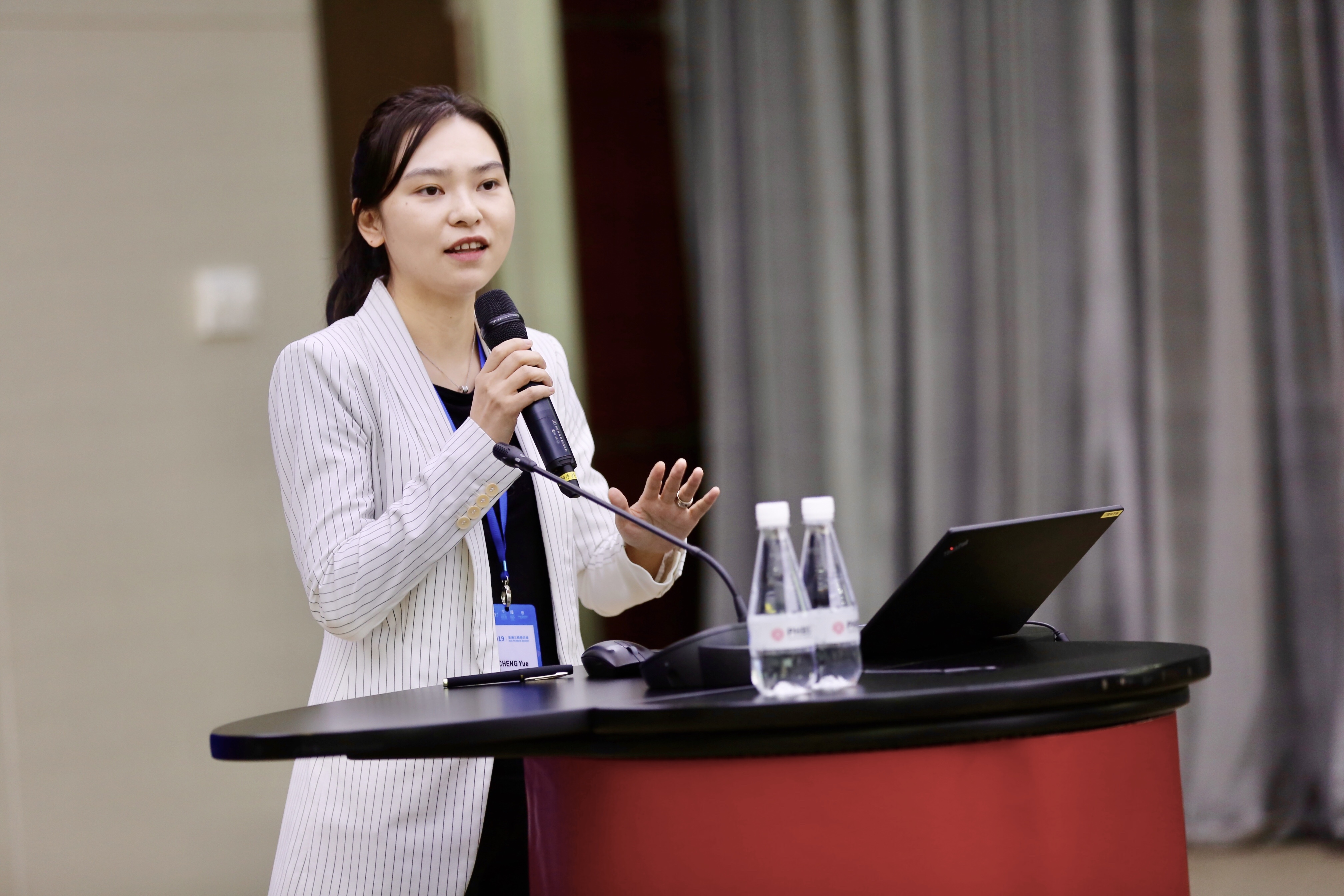
Professor Cheng Yue presents a case study on China's rural elementary school in Yunan province
Professor Sasaki provides comments on Professor Zhu's keynote address
Discussants KUBS Professor Insik Jeong, PHBS Professor Cheng Yue , and HUB-SBA Professor Masato Sasaki provided comments and suggestions on three keynote speeches. They also shared insights by further presenting their case studies on China and Japan. In the Q&A session, participants raised questions related to technological impacts, government regulations and personal privacy.
Scholars listen to the keynote addresses
Participants visit Tencent
On the second day of the seminar, participants were invited to visit Huawei and Tencent, China’s two leading tech companies. The visit offered scholars the chance to gain a better understanding on the companies’ technology innovations and business models.
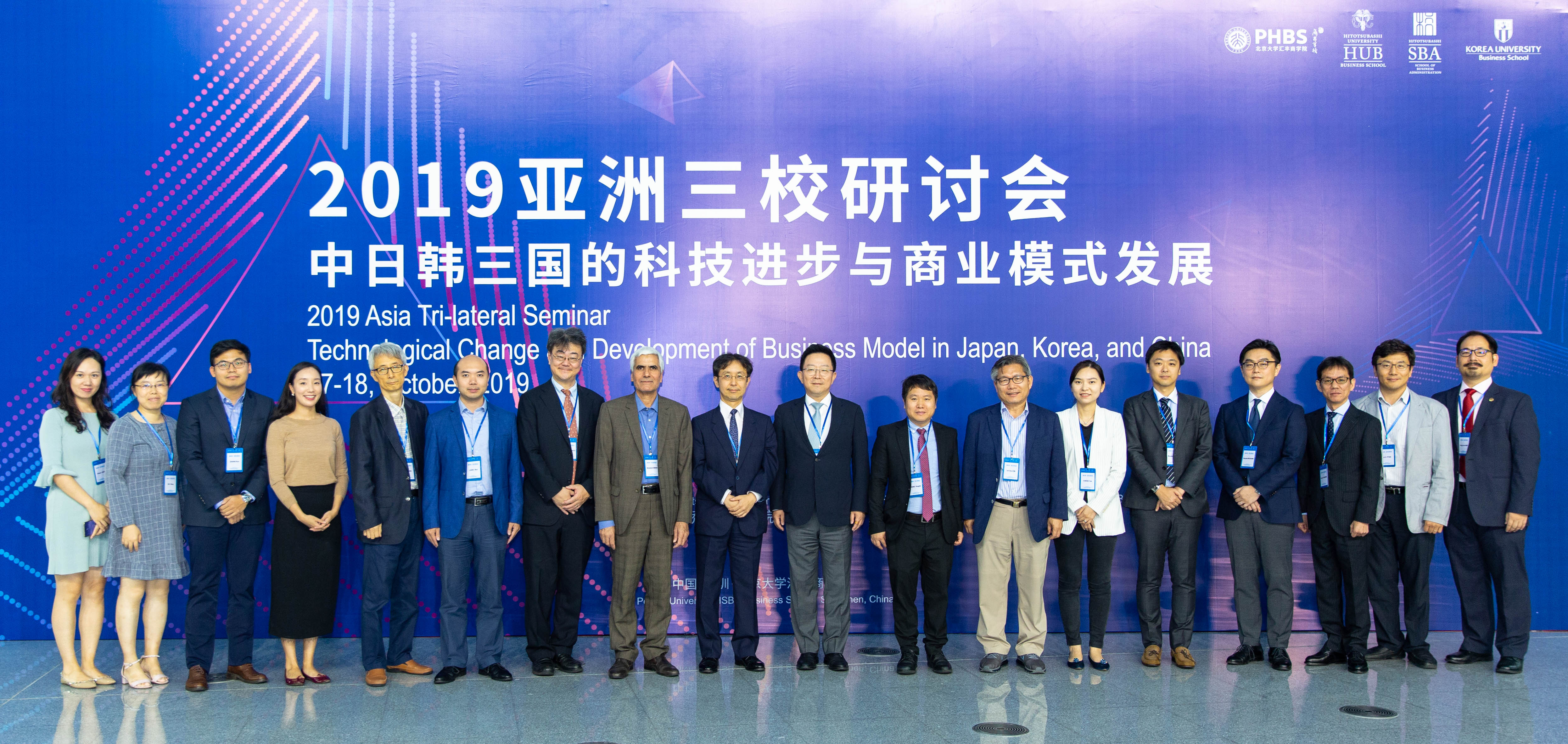 The group photo of participants
The group photo of participants
By Annie Jin
Edited by Priscilla Young
Photo by Annie Jin and Jenny Chen





